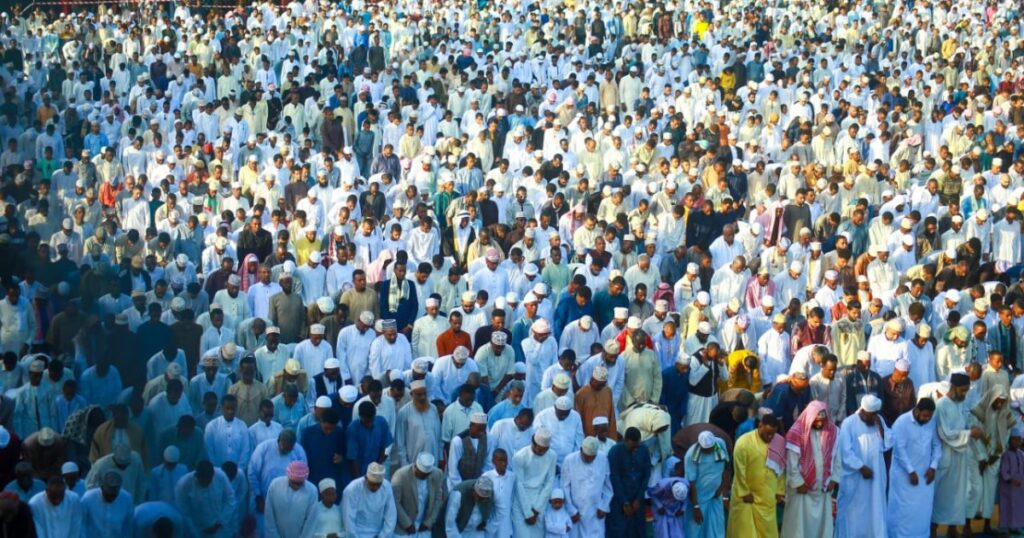- Muslim faithful in Nairobi gathered in many places on June 16, 2024, to mark Eid al-Adha
- The celebration commemorates Prophet Ibrahim’s devotion to Allah and his readiness to sacrifice his son, Ismail
- The observance includes prayers, ritual sacrifices, and sharing meat with family, friends, and the poor to emphasize charity and community support
Muslim community in Nairobi gathered in many places including at the San Siro grounds in Majengo, Pumwani on Sunday to mark Eid al-Adha, one of the most significant holidays in the Islamic calendar.

The faithful convened for prayers to celebrate the festival, which commemorates Prophet Ibrahim’s devotion to Allah and his readiness to sacrifice his son, Ismail.
Eid-ul-Adha, also known as the Feast of Sacrifice, is observed annually by Muslims around the world. The holiday celebrates the time when Ibrahim (Abraham) had a dream that he believed was a command from Allah to sacrifice his son Isma’il (Ishmael) as an act of obedience.
Follow our Facebook page for more updates:
According to Islamic tradition, the devil tempted Ibrahim to disobey Allah and spare his son.
However, Ibrahim remained steadfast in his faith.
See Also:
2: Comedienne Nasra Yusuf Faces Backlash for Controversial Iftar Skit
Just as he was about to carry out the sacrifice, Allah intervened and provided a lamb to be sacrificed instead.
The observance of Eid-ul-Adha begins with Muslims attending prayers at the mosque. Dressed in their finest clothes, they gather to thank Allah for the blessings they have received.
In Majengo, the atmosphere was filled with a sense of unity and devotion as the community came together to pray and reflect on the significance of the day.
Follow our Facebook page for more updates:
Following the prayers, many Muslims participate in the ritual sacrifice of an animal, typically a sheep or goat.
This act symbolizes Ibrahim’s willingness to sacrifice his son in obedience to Allah.
The meat from the sacrificed animal is then divided into three parts: one-third is given to the family, one-third is shared with friends and relatives, and the remaining third is distributed to the poor and needy.
This tradition emphasizes the values of charity and community support.
Community Gatherings
Eid-ul-Adha is not only a time for religious observance but also for communal gatherings and festive celebrations. Families and friends come together to share meals, exchange gifts, and strengthen their bonds.
The holiday fosters a sense of togetherness and reinforces the importance of compassion and generosity in the Muslim faith.
In many countries, the celebration of Eid-ul-Adha involves various cultural traditions and customs.
For instance, in some regions, people decorate their homes with lights and ornaments, while in others, community feasts and fairs are organized.
Follow our Facebook page for more updates:
Despite the regional differences, the core values of faith, sacrifice, and charity remain central to the observance of this important holiday.

